Question And Answer
Publications
Articles, publications, books, tools and multimedia features from the U.S. Institute of Peace provide the latest news, analysis, research findings, practitioner guides and reports, all related to the conflict zones and issues that are at the center of the Institute’s work to prevent and reduce violent conflict.
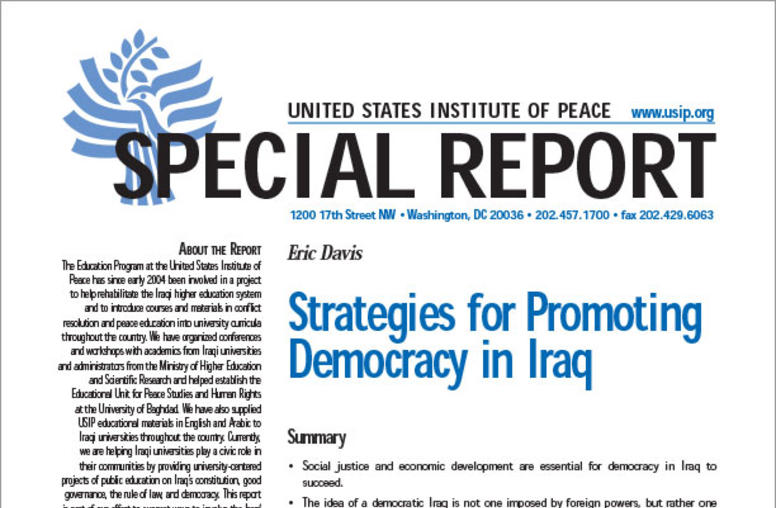
Strategies for Promoting Democracy in Iraq
The Education program at the United States Institute of Peace has since early 2004 been involved in a project to help rehabilitate the Iraqi higher education system and to introduce courses and materials in conflict resolution and peace education into university curricula throughout the country
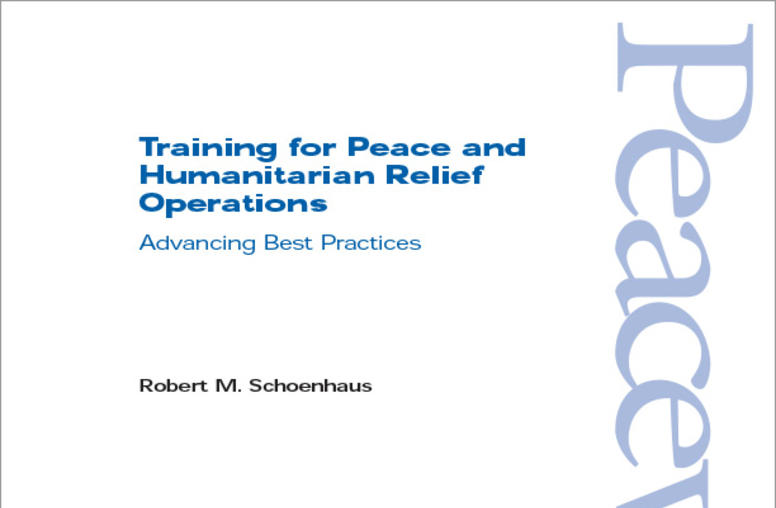
Training for Peace and Humanitarian Relief Operations: Advancing Best Practices
While the four communities in peace operations--governmental and non- governmental organizations (NGOs), the military, and international civilian police--frequently find themselves sharing the same field of operation, their approaches to and structures for training for that interaction and the articulation of training needs are quite different.
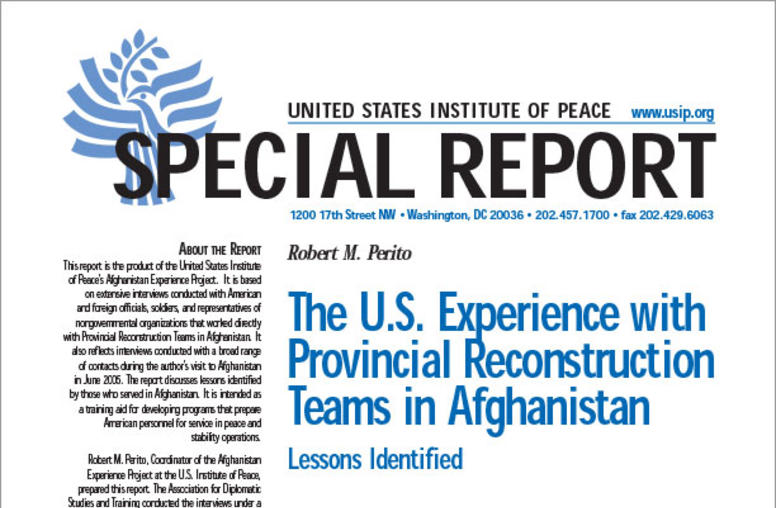
The U.S. Experience with Provincial Reconstruction Teams in Afghanistan: Lessons Identified
Important lessons for current and future U.S. peace and stability operations can be found in the experiences of Americans who served in Provincial Reconstruction Teams (PRTs) in Afghanistan. PRTs are small, joint civilian-military organizations whose mission is to promote governance, security, and reconstruction throughout the country.
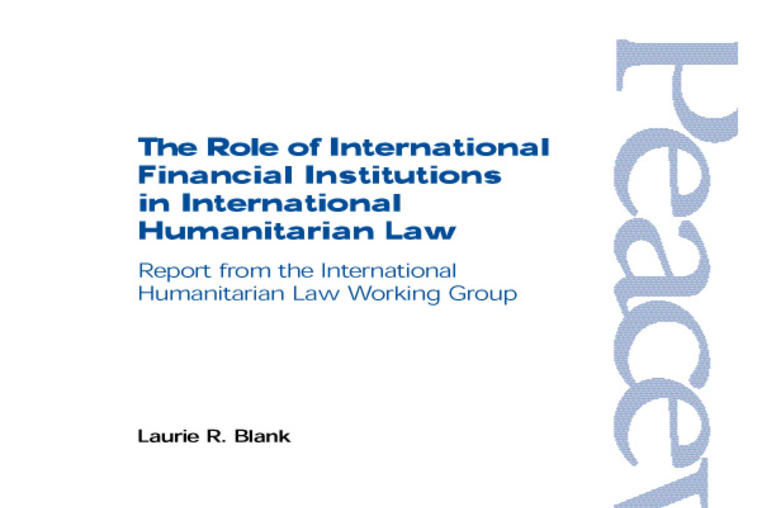
The Role of International Financial Institutions in International Humanitarian Law
This project focuses on the innovative role that new groups and established international organizations can play in stemming the tide of atrocities and promoting adherence to international humanitarian law in regions whose inhabitants cannot count on the mature institutions of civil society to handle their grievances.
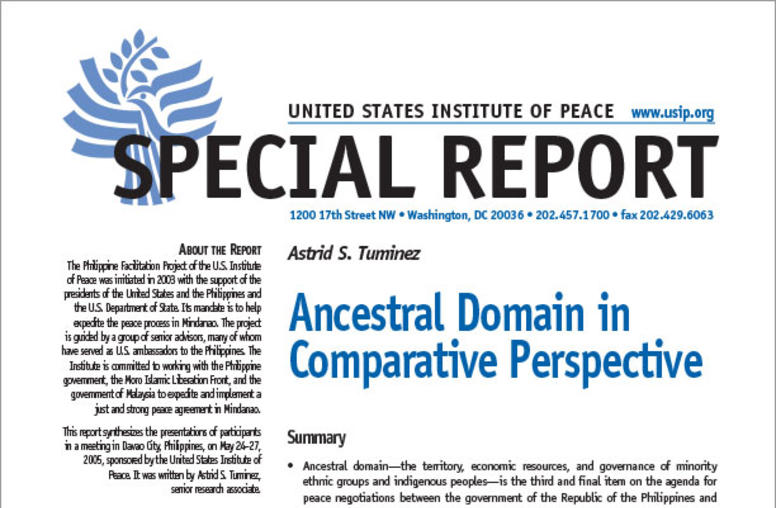
Ancestral Domain in Comparative Perspective
Summary Ancestral domain—the territory, economic resources, and governance of minority ethnic groups and indigenous peoples—is the third and final item on the agenda for peace negotiations between the government of the Republic of the Philippines and the Moro Islamic Liberation Front. The experiences of other minorities elsewhere in the world can be instructive in formulating a stable and peaceful accommodation that satisfies both parties.
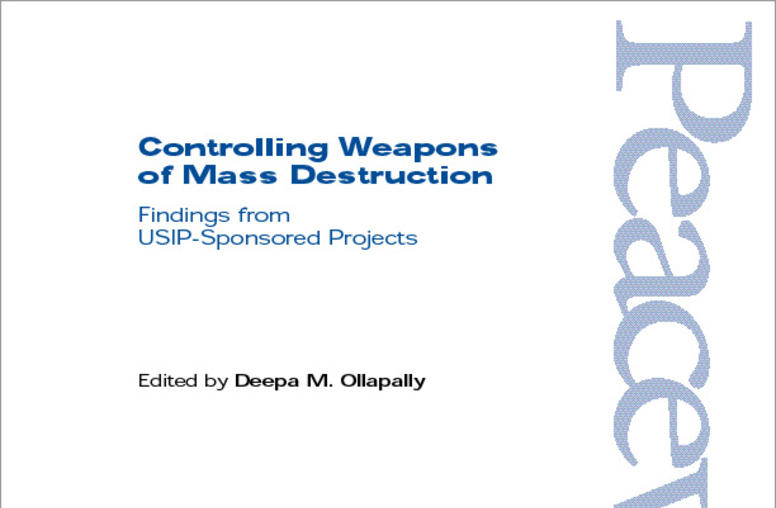
Controlling Weapons of Mass Destruction: Findings from USIP-Sponsored Projects
More than thirty years after the passage of the Nuclear Nonproliferation Treaty (NPT), the record is mixed on the effectiveness of the non-proliferation regime.
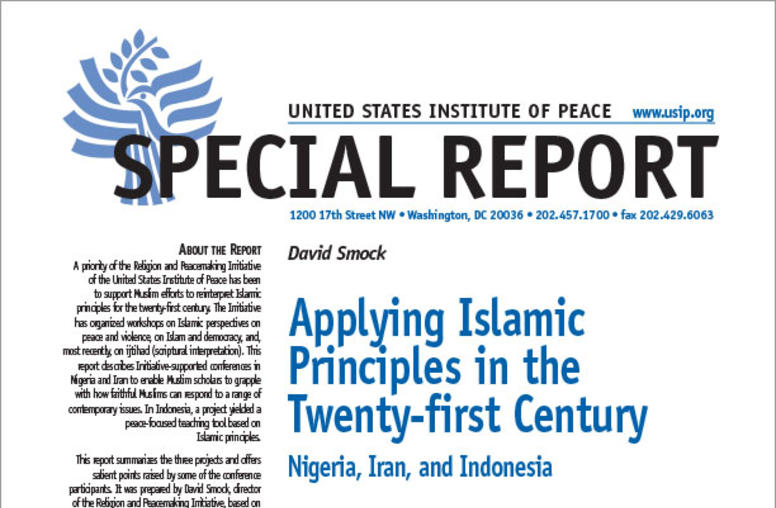
Applying Islamic Principles in the Twenty-first Century: Nigeria, Iran, and Indonesia
This report summarizes the three projects and offers salient points raised by some of the conference participants. It was prepared by David Smock, director of the Religion and Peacemaking program, based on papers by Radwan Masmudi, Asna Husin, and Abdulaziz Sachedina.
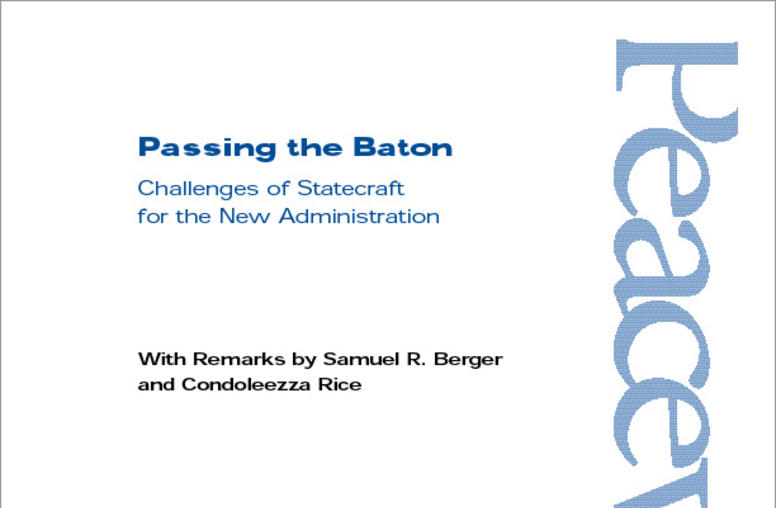
Passing the Baton: Challenges of Statecraft for the New Administration
This report summarizes discussions at a conference of leading officials and specialists on January 17, 2001. The conference program was organized around five panel discussions covering two functional topics (organizing for national security and international conflict management) and three geographic regions of special concern to the United States (Russia, the Balkans, and Northeast Asia).
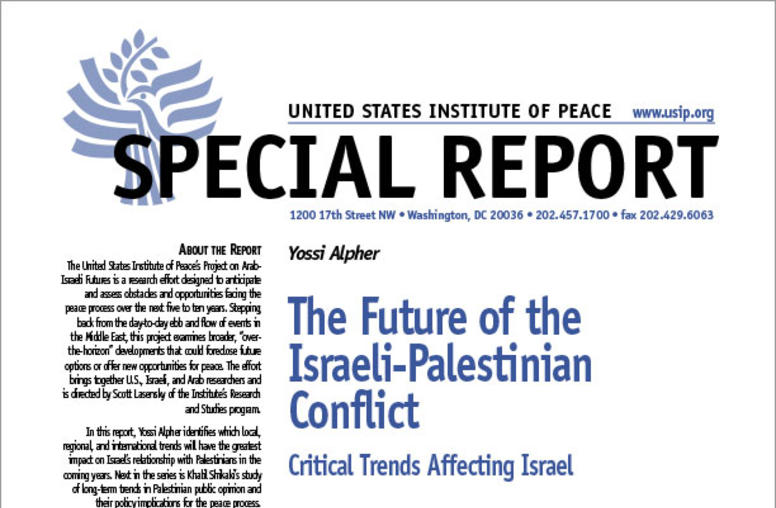
The Future of the Israeli-Palestinian Conflict: Critical Trends Affecting Israel
In this report, Yossi Alpher identifies which local, regional, and international trends will have the greatest impact on Israel's relationship with Palestinians in the coming years. Next in the series is Khalil Shikaki's study of long-term trends in Palestinian public opinion and their policy implications for the peace process.
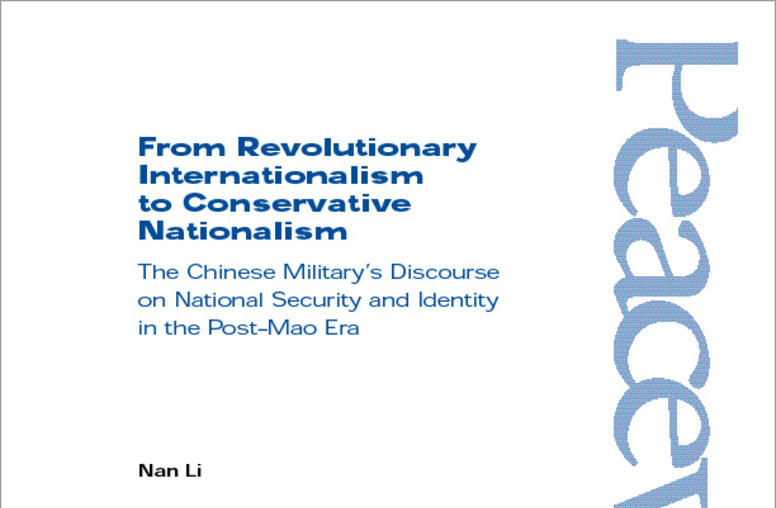
From Revolutionary Internationalism to Conservative Nationalism
Ever since Deng's 1985 "strategic decision" and the corresponding doctrinal change from the country's highest military decision-making body that same year to change Mao Zedong's emphasis on preparing for an early, large-scale, nuclear war, China's military has engaged in a new discourse that is departing from Maoist ideology and moving in a more conservative, nationalist direction. This new military discourse has driven China's foreign policy away from its internationalist and revolutionary f...